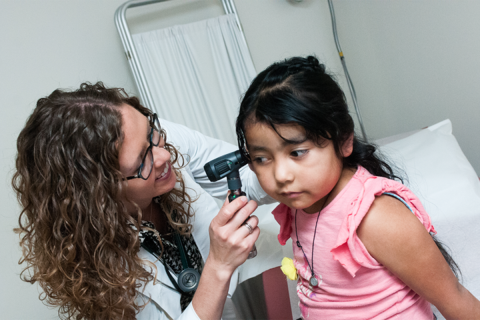Christine Sauvé, a spokesperson for the Michigan Immigrant Rights Center, said the federal government is “excluding individuals that have been relying on these supports for years.”
“It is one more barrier and one more exclusion that immigrant families have to face when they’re already facing so many,” she said.
Head Start in crosshairs
Leadership at the Michigan Head Start Association, which advocates on behalf of the state’s $400 million program, believe the new rule will discourage enrollment.
“If these families cannot have safe care for their children, they cannot go to work, and ultimately, that affects our economy,” said executive director Robin Bozek.
HHS estimates that nationwide, the change would push $374 million annually in additional Head Start services toward US citizens and qualified aliens, citing a preliminary analysis.
The state association is advising Michigan’s Head Start programs, which cover more than 28,000 seats for early education and child support systems, to maintain their current enrollment. Bozek said she’s telling members “not to take any action” without specific guidance from the federal office, and said she is focusing her efforts on advocating for fair access to Head Start.
The program has seen an active campaign of “attacks and disruptions,” according to Bozek, including a proposal in Project 2025, a conservative national policy agenda led by the Heritage Foundation, to eliminate Head Start.
Michigan has 13 Head Start centers, a total of 670 seats, for children of migrant and seasonal farm workers. Telamon Michigan, which runs most of the specialized programs, does not verify immigration status as part of its intake process.
Bozek said the decision to accept children and families into Head Start isn’t about country of origin.
“We believe every child deserves the opportunity to be successful, both in school and kindergarten and in life,” she said. “We believe that Head Start gives those children that opportunity.”
Michigan’s immigrant community
There are more than 737,000 foreign-born individuals living in Michigan — just over 7% of the state’s population, including naturalized citizens and other categories.
Estimates from the American Immigration Council put Michigan’s undocumented population at 110,700 in 2023, in addition to 10,700 DACA-eligible residents and more than 38,000 international students.
Recent congressional figures show the state has 5,940 individuals with temporary protected status, while thousands travel and are employed in the state with temporary work and tourist visas.
Sauvé with the Michigan Immigrant Rights Center said the policy directive, coupled with increased immigration enforcement and a general feeling of unease about working with government officials, have a “chilling effect” on Michigan immigrants who remain qualified to receive federally backed health services, creating “an underclass of Americans” deprived of basic care and social support.
“We are left with quite a few questions for the state of Michigan as they’re evaluating the notices,” she said. “Implementation is a big question mark right now.”
